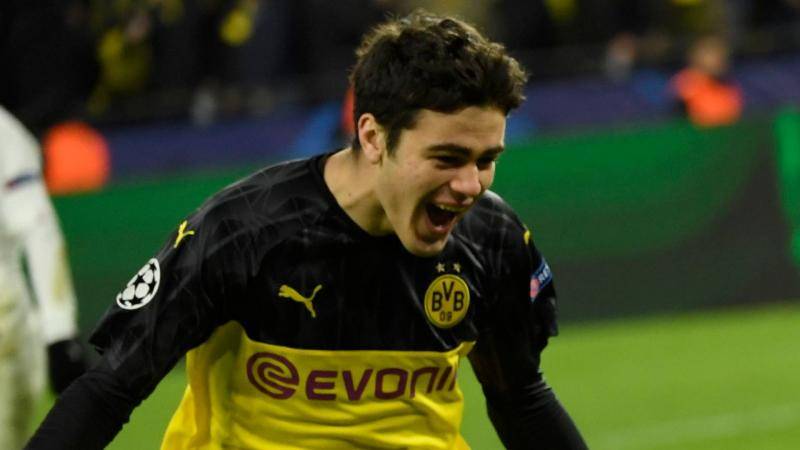
It’s definitely not by coincidence that two of Dortmund’s latest flourishing talents Pulisic and Reyna are American. The United States is yet largely unknown for its football culture and is an untapped resource where the sport is concerned but Dortmund knows there is talent to be discovered and tapped in that vast region.
Which is why for the last three years, Pilawa has labored to develop Dortmund’s scouting network in the US and is convinced it can be a gold mine waiting for clubs willing to work hard to extract undiscovered young talent.
“It’s a very important and interesting market for us. I know that there are not 10 top talents in every age group, but maybe there’s one every three years and I have to know him,” he said.
“I think the adaptation to Germany is not that big … everyone is speaking English here in the dressing room.
“It’s not like maybe the French guys and Spanish guys who have some more problems to adapt because of the language.”
Youth coordinator Ricken is fully cognisant of the difficulties a young budding player could likely face when brought into a new team and the club has methods of softening the impact of the move to assimilate the new player into the squad.
Players without English literacy skills immediately sign up for English lessons up to four lessons a week to learn the language which helps them integrate with the people in their new surroundings.
“It’s not easy for them because they have new teammates, a new language and are away from the parents. They have to be very grown up at a young age. We feel a social responsibility for those young players,” he said.
Searching for a player with the right mentality does not distract from the technical ability required to compete among Europe’s elite. Pace, technique and tactical awareness are all must-have attributes if one is going to play in front of Dortmund’s Westfalenstadion, thronged with a capacity of 80,000 raucous home fans.
“I think that is one reason why the atmosphere in our stadium is so great, because there is a marvelous identification between fans and players,” Ricken said.
“Our supporters want to see players from Dortmund, who were born in Dortmund or who have been educated in our youth department.”
Dortmund has a long-lying connection that runs deep with the local community and, despite the club’s global appeal, wants to continue representing the region it serves.
That begins with recruiting the right players who are able to mirror the attitude of the city.
“Dortmund is a hard-worker region. A lot of people working hard and a lot of industry,” Pilawa said.
“They love hungry people who are ready to fight until the end for their club. So this is a very, very important issue for me when I’m selecting players.
“Jude Bellingham is the perfect player for Borussia Dortmund, for example, because his mentality and his attitude on the pitch is the perfect one to connect the club with the fans and the fans with the club.
“I think it will get more important after this crisis [pandemic] because I think that the people in the stands are thinking more about football in general.
“Right now, you need the right guys on the pitch, with the right personality, showing ‘I’m fighting for the club for you fans’ because it’s a very tough time for everyone here, especially in our region.”
It is again not by chance or coincidence that Dortmund began the new season with a crushing 5-0 win over third-tier side Duisburg in the German Cup on Monday. Their young stars, constantly and consistently bolstered by the arrival of fresh new talent, are clearly making their presence felt in the European leagues.
The club now faces Borussia Monchengladbach on Saturday, marking the start of the new Bundesliga season. Lucien Favre’s side finished a distant second behind rivals Bayern Munich last season but now has the squad to potentially challenge once again for top honors.

